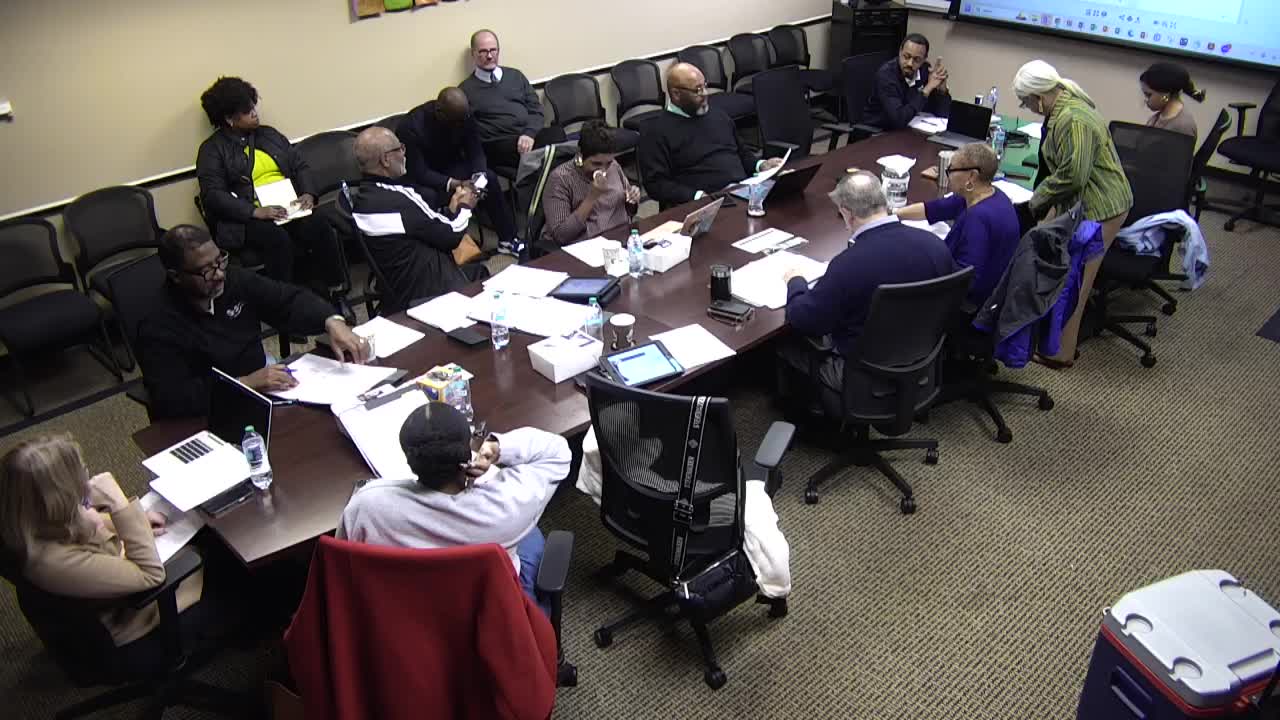DeSoto board considers $500,000 tech innovation fund to attract aerospace, cybersecurity startups
Get AI-powered insights, summaries, and transcripts
Subscribe
Summary
Staff proposed creating a Desoto Tech Innovation Fund (discussion: possible $500,000 set‑aside) and an innovation lab to grow local tech businesses, especially aviation/aerospace and cybersecurity firms; board gave staff direction to pursue a more detailed plan and partners.
Antoine Lowell, the city’s economic development staff lead, presented a proposal to establish a Desoto Tech Innovation Fund and a potential innovation lab focused on aviation/aerospace, advanced air mobility, cybersecurity and related software, firmware or hardware firms. Lowell said staff used metroplex examples (McKinney, Frisco, Arlington) as models and proposed a preliminary fund size of about $500,000 with individual awards typically capped between $10,000 and $50,000 to $100,000 depending on structure and stage.
The plan discussed a mix of grant and investment models—ranging from non‑repayable grants to equity or convertible instruments—and explored whether the city would require recipients to locate in DeSoto as a condition of receiving support. “If what we want to develop is tech companies, then we have to develop tech companies,” Lowell said, adding that recipients would be required to locate in DeSoto to be eligible.
Board members asked about physical space for incubation and about grant vs. investment approaches. Staff said several city‑owned or underused properties (including the heliport and other municipal buildings) could host co‑working or lab space. Legal counsel and staff flagged the difference between revolving loan funds, equity positions and grant programs and said options would be fleshed out in next steps.
Multiple directors supported further study. Dr. Derek Price and other board members emphasized that such a fund could help minority‑owned firms access contracts and that a local fund is also a signal to potential relocations. The board did not adopt a policy or a funding commitment at the meeting; members asked staff to prepare a detailed program design, underwriting criteria, and examples of operating models (grant, loan, equity) and to return with a recommended structure and implementation plan.
Staff noted possible pilot features: (a) requirement that recipients locate in DeSoto, (b) business plans and underwriting tailored for tech firms, (c) partnership with area incubators and the North Texas innovation alliance, and (d) use of city spaces for low‑cost lab/bench space. Antoine Lowell said early conversations with aerospace engineers and with regional partners identified opportunities where modest capital (for test equipment, benches, small manufacturing/test rigs) could unlock significant contract revenue for minority‑owned firms.
Next steps: staff will draft a formal program skeleton (fund size scenarios, selection criteria, grant vs. investment recommendations, space options, and metrics), identify potential outside partners (incubators, regional funds, private investors) and return to the board for direction. The board indicated a general appetite to proceed to a more detailed design phase.
